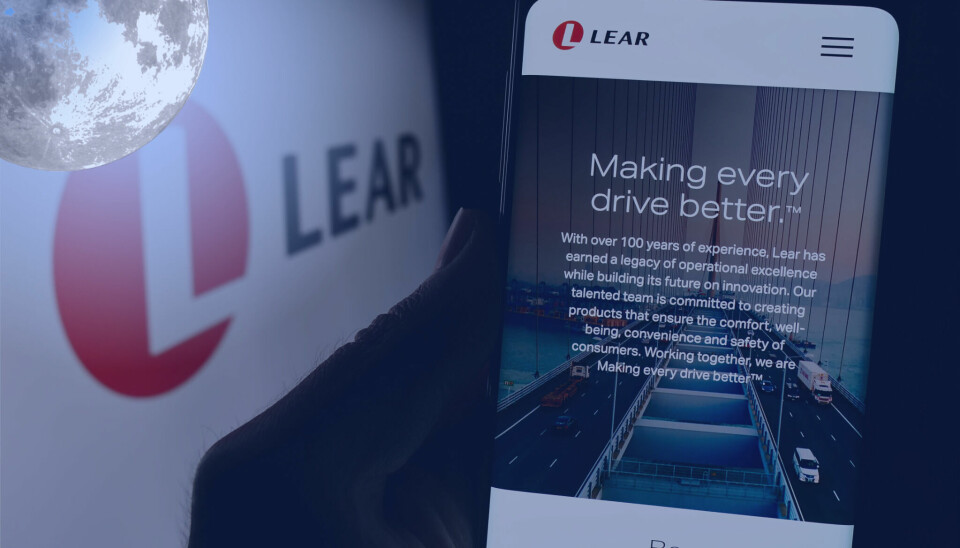Digital Transformation
Lear’s “lights-out” vehicle production launches in Michigan

Lear is opening an advanced centre in Michigan to demonstrate lights-out manufacturing and deepen its automation push, building on its Palantir-backed digital strategy.
Lear Corporation, the seating and electronics supplier based in southeast Michigan, is taking its automation drive a step further. The company is opening what it calls an “advanced manufacturing and integration centre” in Rochester Hills, north of Detroit, designed to demonstrate what lights-out production looks like when human labour is no longer part of the process.

“The goal of that facility is to highlight what lights-out manufacturing looks like, and the progress has been amazing — what we’ve been doing with thermal comfort systems and the modularity strategy that we have,” said Frank Orsini, executive vice president of Lear’s seating business, during an investor conference on 11 September. “The equipment and production process that we put in place is 100 percent automated for that product.”
Lights-out manufacturing, sometimes called a dark factory, has long been discussed as the endpoint of Industry 4.0. Few companies in the automotive supply chain have pursued it as aggressively as Lear. Over the past seven years it has acquired eight robotics and automation firms and woven them into its operations.
“For Lear, we’ve been on more than a decade-long journey of really establishing our company as a leader in integrated automation and digital manufacturing,” Orsini said. “Our goal with those acquisitions was to create product and process innovation.”
Scaling automation across customers
Chief executive Ray Scott first trailed the Rochester Hills project during Lear’s July earnings call. He told analysts that the centre “illustrates the complete modular system being automated” to serve customers including General Motors, Ford and Stellantis.

“I think the ability to scale the onshoring that we’re seeing, I think, really adds to the credibility of how we can replicate a very cost-efficient system that can be scaled across multiple programs,” Scott said. “That’s exactly what our customers are looking for. They’re looking for cost efficiencies that can be generated.”
Lear has been reluctant to disclose more about the Rochester Hills site, but executives emphasise its role as a showcase for investors and customers. “This innovation centre that we’re putting here in Michigan to demonstrate it for analysts and for investors and for customers is going to really, really, I think, help us propel the growth strategy within the thermal comfort system,” Scott said.
A long road to innovation
This is not Lear’s first experiment with innovation centres. In 2016, under then chief executive Matt Simoncini, the supplier invested $10 million in a downtown Detroit Innovation Centre intended to develop automotive technologies, incubate non-automotive ventures and link with local universities. The site was closed a few years later and sold for $7.4 million in 2021 to the insurance firm H.W. Kaufman Group.
The new approach is far more closely tied to Lear’s core business and manufacturing network. Global pressures, from tariffs to rising labour costs, are pushing suppliers towards automation as they seek to balance cost with resilience. The Trump administration’s duties on imported components accelerated this process, while US labour shortages have made the appeal of robotics stronger still.
Lear’s embrace of automation has had consequences. Its global revenue has remained relatively flat, but its headcount has dropped sharply, with 15,000 jobs cut last year and further reductions expected this year. Scott has framed this not as a loss for workers but as an opportunity to reshape roles on the shopfloor. A year ago he told Crain’s Detroit Business that automation would “take undesirable jobs and improve ergonomics” while making production more efficient.
Software and hardware converge
The physical changes in Lear’s plants are being matched by a deeper digital shift. Earlier this month, Lear announced a five-year expansion of its partnership with Palantir Technologies, the US software company. The supplier will expand use of Palantir’s Foundry data integration platform, its Warp Speed manufacturing operating system and its Artificial Intelligence Platform across its global footprint.
Palantir’s systems already support more than 11,000 Lear employees and help manage tariff exposure, streamline workflows and balance manufacturing lines dynamically. They are central to IDEA by Lear, the supplier’s digital transformation programme, which generated more than $30 million in savings in the first half of 2025 alone.
“Palantir is a key component of our IDEA strategy to automate and streamline manufacturing processes and administrative functions across the company,” Scott said. “This partnership strengthens Lear’s position as an automotive technology leader and remains essential to our supply chain and operations. We have already seen significant improvements in global efficiency, creating a more agile and adaptable Lear.”
For Palantir, the relationship is equally strategic. “We are proud to partner with Lear and showcase the very best of what Warp Speed and Palantir are capable of,” said Alex Karp, co-founder and chief executive. “Lear is improving the lives of its employees and developing the manufacturing plants of the future by deploying Palantir onto its production floors.”
Read More Smart Factory Stories
-

How Porsche builds the body of the new electric Cayenne
-

China's 12-in-1 EV Drivetrain: How InfiMotion hits 360K annual output
-

Audi brings artificial intelligence to the shopfloor with 'Edge 4 Cloud'
-

Oilstainlab HF-11 supercar shows radical design can be built through DfM
-

Why smart sequencing is becoming a backbone of modern vehicle assembly
-

JLR deploys drones to slash inspection times by 95%
-

Why Catena-X is becoming critical to automotive production
-

Nissan retools Sunderland for next-generation Leaf
-

2026 and the knowledge capture race reshaping auto production
-

Nissan is using AI to support engineering teams in accelerating vehicle testing
The future of dark factories
Lear first partnered with Palantir in 2023 to digitise its manufacturing operations. The combination of lights-out production and advanced data systems positions the supplier as one of the most radical adopters of automation among large automotive companies.
What Lear is building in Rochester Hills is not merely a demonstration line but a statement of intent. If successful, it could become a template for how one of the world’s largest seating and electronics suppliers intends to compete in an industry where efficiency, modularity and resilience are prized. Whether it is a true glimpse of the dark factory of the future will depend on how fast Lear can scale these systems across its sprawling global network.




